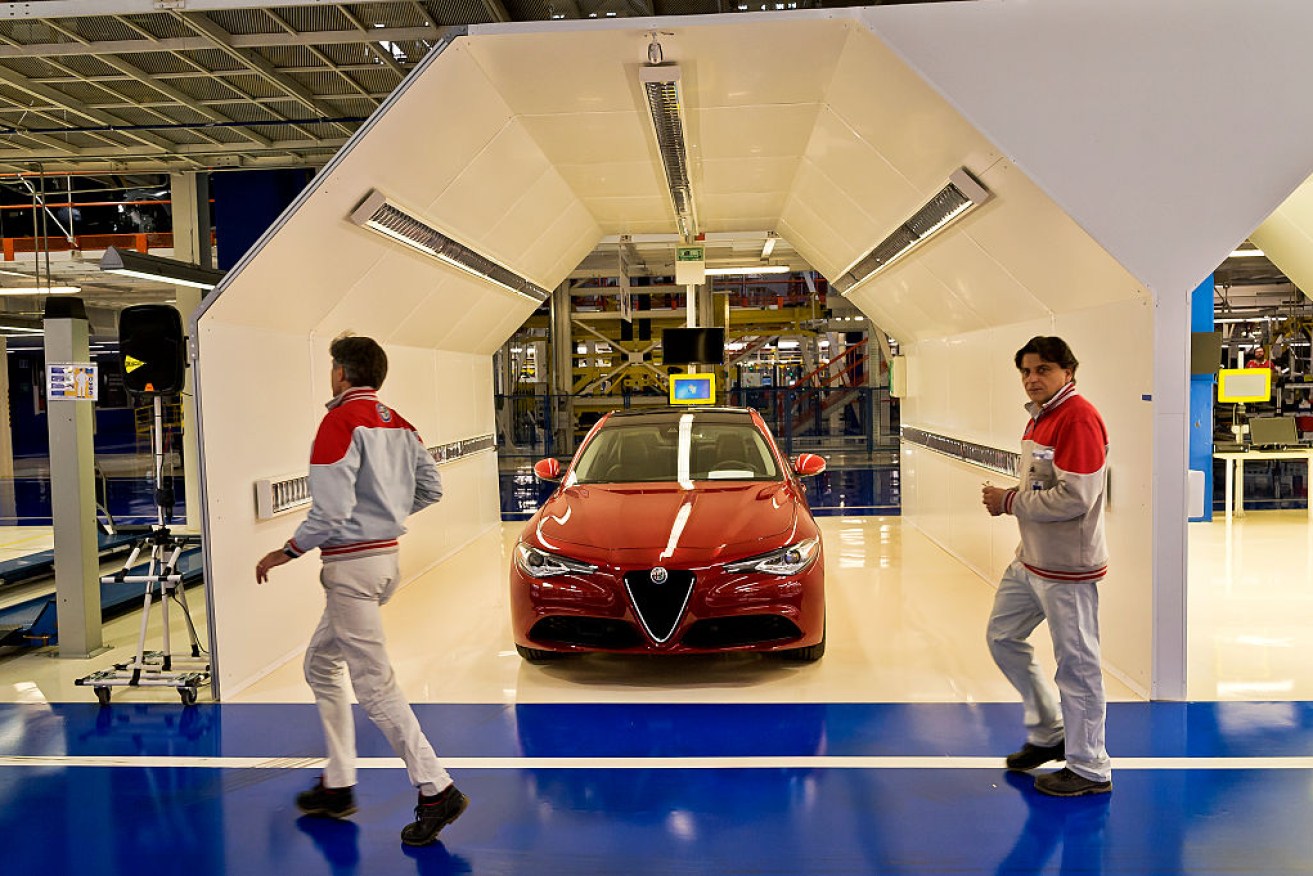US-China trade war and Brexit drag global manufacturing into recession, analysts say

Manufacturing in Europe has slumped to worrying lows. Photo: Getty
A combination of the US-China trade war and Brexit has dragged global manufacturing into recession, according to market analysts.
Manufacturing surveys, or PMIs, published overnight showed European business growth has stalled, dragged down by deteriorating conditions in the economy’s traditional powerhouse Germany.
“It [the trade war and Brexit] is damaging world trade, we can see it – it’s as obvious as the ugly nose on the end of my face,” London City market analyst David Buik said.
“Every continent in the world is starting to suffer.”
The data showed the downturn in Germany’s critical manufacturing sector deepened dramatically in September.
The country’s factory output is now the weakest since the global financial crisis, with the sector effectively enduring recession-like conditions.
It followed news that manufacturing output across the OECD’s 36 member states contracted in June – the worst reading since the start of 2013.
Tweet from @IHSMarkitPMI
“There are signs, whether we like it or not, of the world conceivably entering into a recession – probably starting in Europe, before anywhere else,” Mr Buik said.
“This is, of course, worrying.”
Recession risk increasing
Queensland Investment Corporation director Beverley Morris, who helps manage roughly $85 billion worth of investments, said global manufacturing had now slipped into an “official recession”.
“That’s been happening over the course of this year, and that is continuing as we speak,” Ms Morris said.
“What hasn’t happened yet is signs of that significant slowing happening elsewhere in the economy.
“But that is obviously the risk, and that is risk that we’re now starting to increase in our probability of recession.”
The global manufacturing malaise has prompted QIC, one of Australia’s largest fund managers, to stock up on large amounts of bonds – considered the safest type of investment – in anticipation of a global economic recession.
“So we have, on the whole, this year for most of our portfolios, been holding more government bonds, and of late, we have added back to those positions,” Ms Morris told AM.
“We want to make sure that our portfolios and our investors are protected as much as possible if we do end up going into that sort of downturn.”
Global worries weigh on RBA
Ms Morris said she was confident the risks of a global recession will push the Reserve Bank into cutting interest rates to a fresh record low next week.
“Obviously we’ve had a couple this year already,” she said.
“We would have said domestic reasons were the trigger for those first two rate cuts.
“Probably the one we’re going to get next week is due to more global concerns.”
But Mr Buik said Australian policymakers will need to do more than ease monetary policy to protect the economy from an approaching financial storm.
He argued the government should consider investing in additional infrastructure projects to help stimulate the economy.
“If you don’t open the fiscal doors, and create infrastructure projects that employ people, that create demand so people have got money to buy cars, goods, technology, the rest of it, you better get your tin hat. I mean it shouldn’t be too far away,” he said.
“It’s the way forward as far as I’m concerned.”









